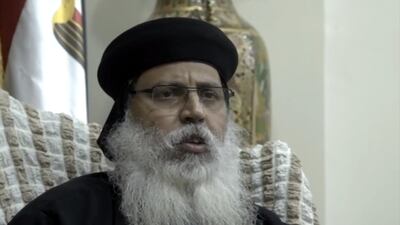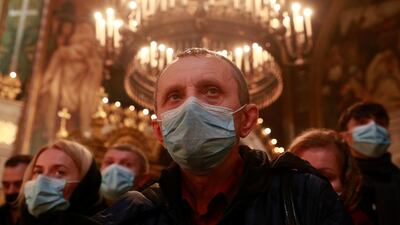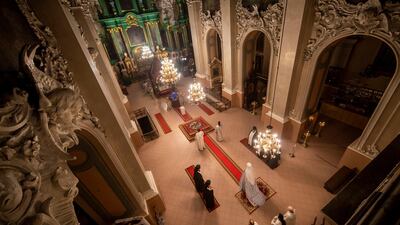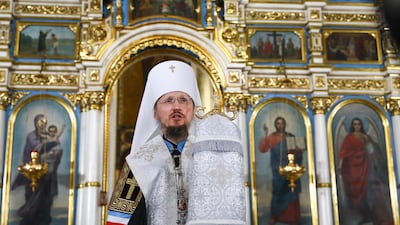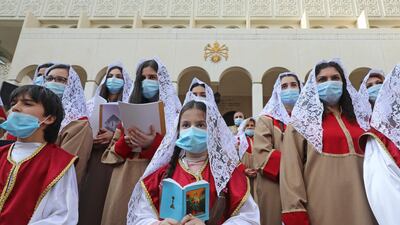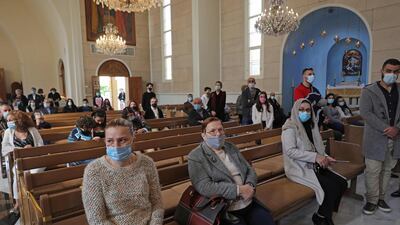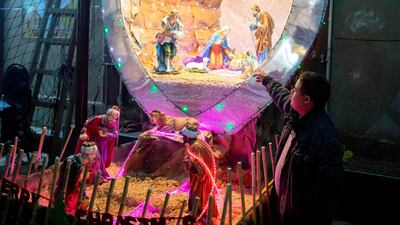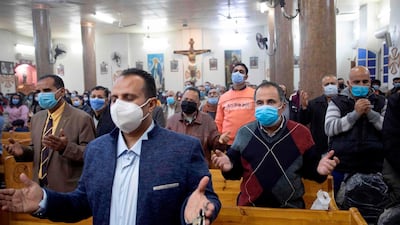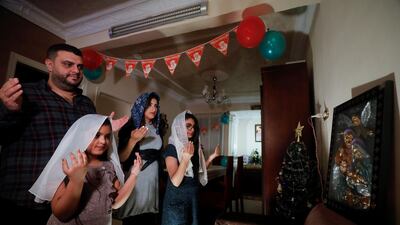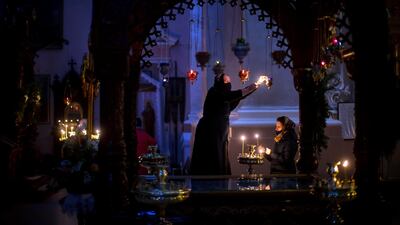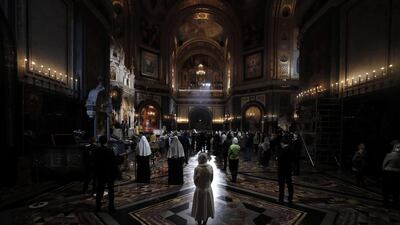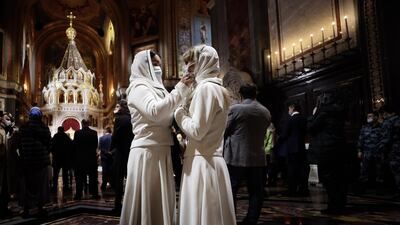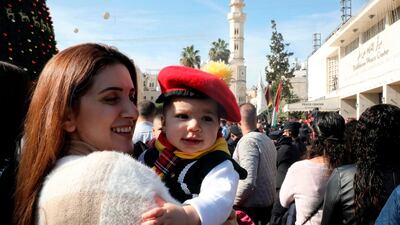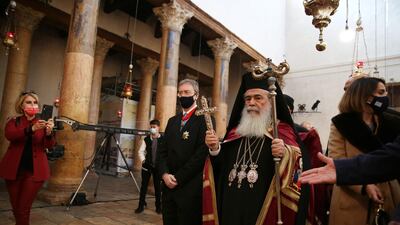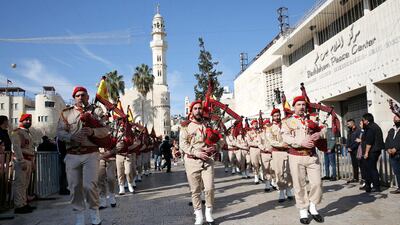The small community of the Coptic Orthodox Christians in Iraq have celebrated Christmas amid tight protective measures this year to reduce the risk of the pandemic spreading further.
Guidelines were published by the church on social medial the day before, while only limited number of worshipers were allowed to Wednesday's night Mass at the Apostles' Fathers Church in Baghdad.
Along with Orthodox communities, Coptic Christians worldwide celebrate Christmas on January 7.
A sanitisation booth was set up at the entrance and worshipers had to wear face masks, while only two were allowed to sit on each bench. Sanitisers were placed in every corner along with boxes of face masks.
“The situation has been very hard since March due to the pandemic,” Father Mina Al Ureshalimi told worshippers during the Mass, which was aired live on the church Facebook page for those who didn’t attend.
“I consider this [coronavirus] as a warning from God [to us] in order to return to God with our whole hearts,” Father Al Ureshalimi added.
The Copts in Iraq make up only a small fraction in the country’s Christian community. Most Iraqi Christians adhere to the Chaldean Catholic Church.
There are about 250 families, around 1,500 individuals who subscribe to the faith in Iraq, mainly in Baghdad and surrounding areas as well as the northern part of country, according to Father Al Ureshalimi.
The majority are Egyptians who came to Iraq during its heydays as far back as the 1960s and many married Iraqi women, he added.
Among those is Maher Georgy Basil, 59, who has been in Iraq for 34 years now.
“I pray for stability, security and peace for Iraq,” said Mr Basil, the father of four who came with his Iraqi wife, mother-in-law and children.
As a taxi driver, he has been badly hit by the coronavirus lockdowns and the economic crisis gripping the country.
“Since the outbreak, I earn only half what I used,” he said, adding that he’s making no more than $35 a day at the best.
Under posters of Jesus Christ and other religious figures’, Nassira Noeil lit a candle to pray not only for Iraq but also her sick husband.
“Last year was not a happy one due to the pandemic and the economic situation,” said Ms Noeil, a 39-year-old pregnant mother of four.
“There were celebrations everywhere last year in all churches, but this time the atmosphere is very sad,” she added.
The name “Coptic” refers to an ethnic group indigenous to North Africa. In Egypt, they constitute the largest majority of Christians, who comprise about 10 per cent of the Muslim-majority population. The name also refers to the language they speak.
In Egypt, they have endured attacks carried out by extremists and complain of discrimination. Since December 2016, extremists have killed over 100 Egyptian Christians in attacks on religious sites.
Most of the Copts follow the Coptic Orthodox Church of Alexandria, one of the oldest branches of Christianity. It was founded in Egypt by St Mark the Evangelist in around AD 42.
The smaller Coptic Catholic Church is an Eastern Catholic Church, in communion with the See of Rome, while others belong to the Evangelical Church of Egypt.
Since the 2003 US-led invasion that toppled Saddam Hussein, Christians have suffered targeted killings and kidnappings for ransom by extremists, forcing many of them to leave.
The houses and businesses of those who fled have since been taken illegally, mainly by gangs who forge property papers.
Their leaders estimate the number of Christians in Iraq to be around 500,000 or less, far from nearly 1.5 million before 2003 when they lived in peace among the country’s Muslim majority and enjoyed protection from both the government and society.
The deadliest attack they suffered was in October 2010 when an affiliate of Al Qaeda in Iraq stormed into Our Lady of Salvation Catholic Church in Baghdad during Sunday night mass, killing at least 58 people.
Four years later, thousands of Christians fled their ancestral home in Mosul and surrounding areas as ISIS militants advanced, confiscating their homes, burning churches and forcing them either to convert to Islam or pay a special tax.
